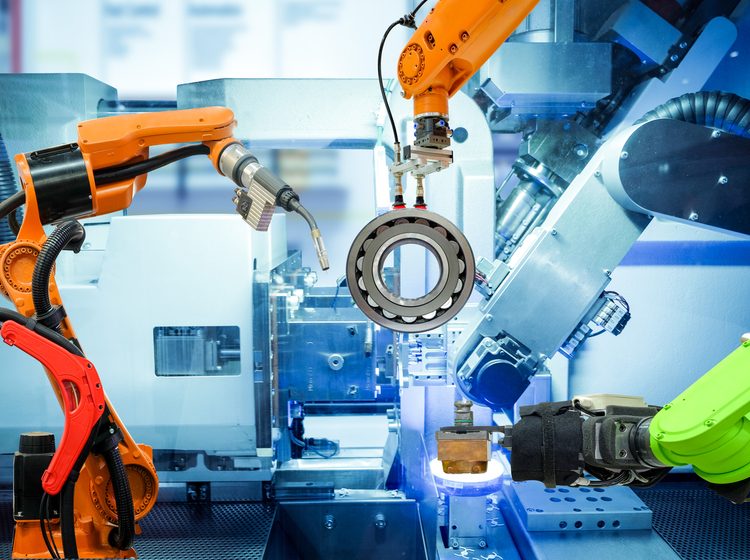The 21st century has seen rapid and radical changes in technology, from smartphones to social media, driverless cars to virtual reality. Increasingly, technology is having a profound impact on workplaces, job markets and economies.
In fact, many experts and economists believe that we are on the verge of a 4th industrial revolution. Emerging technologies such as robotics, 3D printing and the ‘Internet of Things’ are predicted to fundamentally change the world of work.
The impact of Artificial Intelligence
But perhaps the new technology with the greatest potential to radically alter the future of work is Artificial Intelligence – or AI.
The reason for this is that the work that humans can carry out can be generally divided into 2 types: physical and cognitive.
Jobs that involve physical tasks, such as manual labour and manufacturing, have been greatly affected by machines during the past few decades. For example, factories can use robots to build cars, leading to a sharp decline in jobs available for human workers in this sector.
However, robots have been unable to compete with human beings in work that requires thought rather than physical labour. These ‘cognitive’ jobs, even ones that involve routine tasks such as data entry, have been relatively safe from new technology – until now.
Advances in AI mean that many sectors of the economy, from banking to healthcare to hospitality, may no longer need humans to perform certain tasks. For example, in Japan there are already shops and hotels whose staff are primarily robots.
A San Francisco company is developing a robot that navigates the aisles of supermarkets, making sure the shelves are stocked. Even some highly paying financial analyst jobs could be performed by artificial intelligence in the near future.
It may sound like a science fiction film, but it’s closer than you think. Recent research indicates that many leading organisations in wholesale and retail, finance and public administration areas could explore the use of robots in their operations. These sectors could be automated relatively easily in the short term, as well as in the transport sector in the longer term.
Of course, these changes will create new jobs as well as replacing old ones. But the overall impact of emerging technologies is uncertain at best. If machines can carry out both physical and cognitive tasks, what’s left for humans?
How to prepare for the future of work
So among all these changes to the world of work, where does going to university fit in? Simply put, if low-skilled jobs will increasingly be lost to robots, the best way to protect your career is to get a university education, and a good degree.
While AI means that machines are increasingly clever, they still struggle to think creatively. Creativity, therefore, could soon be our most valuable attribute.
That doesn’t mean to say that students should all study a typically ‘creative’ degree such as Art, Media or Journalism. Simply studying at university helps students to think creatively, no matter what field they are in. What matters is being able to ‘think outside the box’.
Let’s look at mathematics. Despite being almost the polar opposite to a traditionally ‘creative’ subject, it still requires a lot of abstract thought. Theoretical mathematicians, for example, are trying to answer fundamental questions about the nature of the universe and the laws of physics; something that requires imagination. AI cannot do this.
The same principle can be applied across different sectors – while robots can carry out routine tasks, there will still be a need for people who are highly educated and highly skilled to keep driving progress.
Get a university education
Overall, higher education is likely to become ever more crucial in the future. At Kaplan, we believe in the importance of education, and we’re committed to helping students around the world study at top universities.
If you’d like to find out more about studying at university in the UK, US or Australia, why not get in touch?






